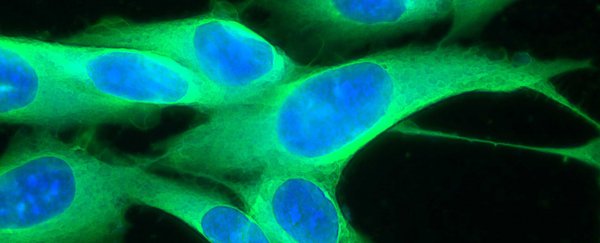Two of the most promising recent approaches to cancer treatment are immunotherapy, which harnesses the body's own immune system to fight cancer, and personalised medicine, which involves therapeutics that are targeted to the genome of a particular patient and that patient's cancer.
Now scientists have combined those two strategies to create a novel treatment: a vaccine developed for a single patient that triggers an immune system attack that is laser-focused on that patient's tumours.
In the very first human trial testing this approach, the personalised vaccines successfully activated an immune response in three patients with melanoma.
The research is in its earliest stages - it's too soon to say if the treatment actually improved survival in the patients or whether it will work in others at all. Still, scientists are excited about the idea and the proof-of-concept results, which were published in the journal Science on April 2.
In cancer, each tumour is unique, which is one reason that they can be so hard to treat. In this new approach, scientists have used that to their advantage. The broken genes that make a tumour grow out of control "can also be targeted by the immune system to control malignancies," researchers from the Netherlands Cancer Institute and Washington University School of Medicine explained in a research review published alongside the study.
To create the personalised treatments, scientists determined the unique genetic make-up of each patient's melanoma tumours, which had been surgically removed. They then identified special targets, called neoantigens, on the surface of each patient's cancer cells. Using those targets, they developed a personalised vaccine for each patient that would hopefully encourage their immune system to attack these specific neoantigens on that patient's cancer cells.
Selecting those unique-to-the-tumour targets "helps to minimise adverse events or side effects," explained Elaine Mardis, a study co-author and researcher at the Genome Institute at the Washington University School of Medicine, on a call with reporters. The immune response triggered by the personalised vaccines is designed to behave more like a sniper than a bomb - using the neoantigens as "flags" so it can specifically taking out the cancerous cells.
Still, the process is complicated: developing each vaccine took the research team about three months - too long to wait for many cancer patients. They're hoping a timeline of four to six weeks will become possible as they refine the process.
Even at this early and uncertain stage, scientists are encouraged by this approach because there's a chance it could prove effective in patients who don't respond to existing treatments. And while the trial was in melanoma, the researchers are eager to try it out on other cancers that are associated with carcinogens, like bladder, lung, and colorectal cancers.
Still, it's important to remember that many cancer therapies that seem promising at first don't live up to the hype.
"This was not meant to be a therapeutic study," emphasised Gerald Linette, an oncologist at the Washington University School of Medicine and a coauthor on the paper, on a call with reporters. "Our primary goal was to see if this was safe and if we could elicit an immune response."
More testing will determine whether that immune response is tied to survival and whether it can be replicated in a wider variety of patients.
This article was originally published by Business Insider.
More from Business Insider:
